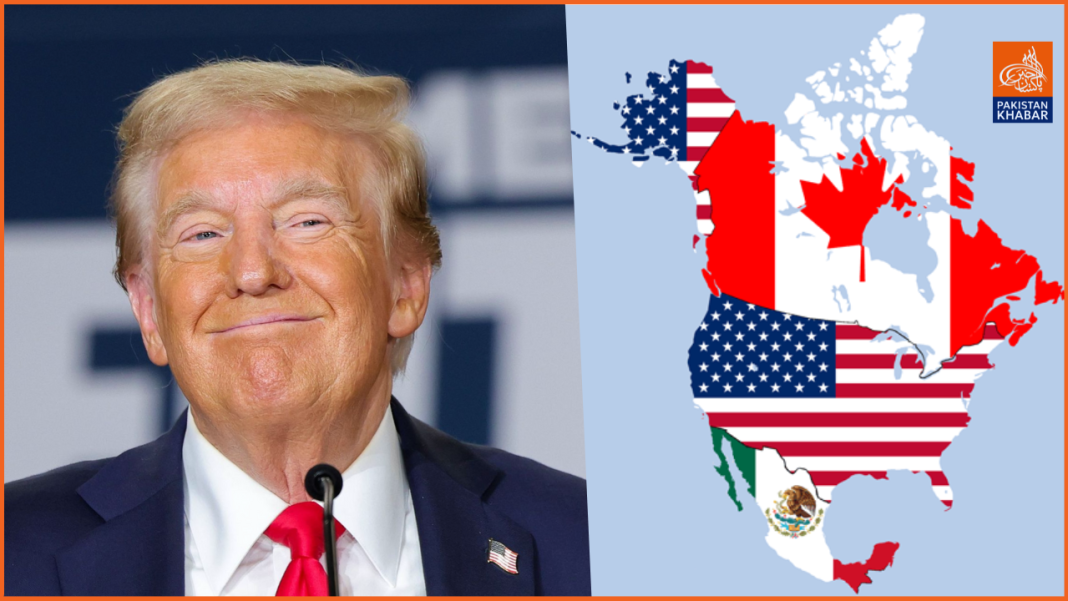In a move that has sent shockwaves through international markets, President Donald Trump has imposed substantial tariffs on imports from Canada and Mexico, with a 25% levy, and a 10% tariff on Chinese goods. These actions, announced over the weekend, have prompted immediate retaliatory measures and sparked widespread concern over potential disruptions to the global economy.
Immediate Repercussions
The tariffs have elicited swift responses from the affected nations. Canadian Prime Minister Justin Trudeau condemned the U.S. decision, labeling it “totally unacceptable” and announcing plans to implement reciprocal tariffs on $12.8 billion worth of American products, ranging from steel to yogurt and toilet paper. Trudeau emphasized that these U.S. tariffs would harm jobs in both countries and lead to increased costs for consumers.
Similarly, Mexican President Claudia Sheinbaum Pardo criticized the move, suggesting that instead of imposing tariffs, the nations should collaborate on health and public safety initiatives. Mexico has responded by imposing its own 25% tariffs on American goods.
China, facing a 10% tariff on its exports to the U.S., has announced plans to challenge the tariffs at the World Trade Organization and is preparing countermeasures.
Market Turbulence
The announcement of these tariffs has led to significant volatility in global markets. Major stock indices, including Germany’s DAX, France’s CAC, and the UK’s FTSE 100, experienced declines exceeding 1%. In the United States, futures for the Dow Jones, S&P 500, and Nasdaq indicated drops between 1% and 2%.
Oil prices have surged due to anticipated supply disruptions, while the U.S. dollar has strengthened against multiple currencies, reaching a 20-year high against the Canadian dollar. Conversely, metals and agricultural commodities have seen price declines amid the prevailing uncertainties.
Potential Economic Impact
Economists warn that these tariffs could have far-reaching consequences. The interconnected nature of industries such as automotive and food supplies between the U.S., Canada, and Mexico means that tariffs could disrupt supply chains, increase production costs, and ultimately lead to higher prices for consumers.
The UK’s fragile economy is also at risk, given its strong trade dependencies on international markets. Economic forecasts suggest that tariffs could lead to a significant drop in UK exports, increase inflation, and necessitate higher interest rates from the Bank of England.
Furthermore, the tariffs could lead to a significant drop in exports from affected countries, increase inflation, and necessitate higher interest rates from central banks. The disruption of global supply chains could hinder economic recovery efforts post-pandemic.
Global Trade Relations at a Crossroads
The imposition of these tariffs marks a significant escalation in trade tensions and raises questions about the future of international trade relations. While the stated intention behind the tariffs is to encourage the consumption of domestically produced goods and address issues such as drug trafficking, many argue that this strategy does not align with the complexities of global trade.
Experts, including those from The Wall Street Journal and the Institute of Directors, have criticized the move, predicting it will damage U.S. businesses, consumers, and economic growth. The tariffs are expected to disrupt global supply chains and hinder economic recovery post-pandemic.
Looking Ahead
As the situation unfolds, businesses and consumers worldwide are bracing for the impact of these tariffs. The potential for a protracted trade war looms large, with the possibility of further retaliatory measures and escalating tensions. The global economy stands at a precarious juncture, with the actions of the coming weeks and months likely to have lasting implications for international trade and economic stability.
In the face of these developments, it is crucial for policymakers to consider the broader implications of protectionist measures and to seek collaborative solutions that promote economic growth and stability. The interconnected nature of the modern global economy means that actions taken by one nation can have far-reaching consequences, underscoring the need for thoughtful and measured approaches to international trade policy.




